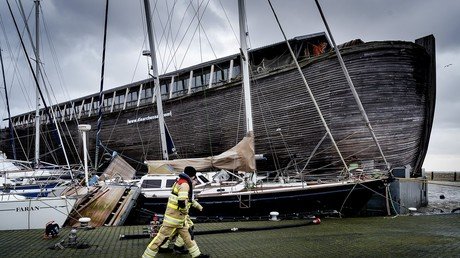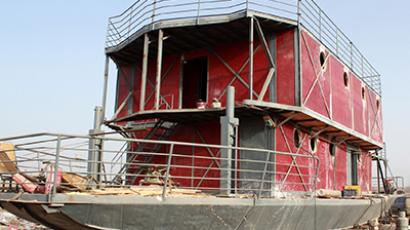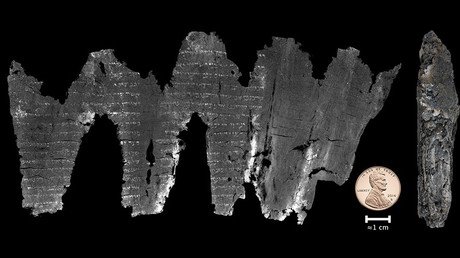Flooded with calls: Noah used cell phone to tell son to board ark, academic claims

The story of Noah's Ark is a famous one, but a Turkish academic says details of the ancient tale are unknown to most people. He claims Noah used a mobile phone to tell his son to board the ark.
It's a story that's included in both the Bible and the Koran. Noah was chosen by God to build an ark because of an impending flood. He was told to take a male and female of every animal that lived on land or flew in the sky, so their species could survive and reproduce after the flood.
The story supposedly happened 10,000 years ago, but that doesn't mean Noah wasn't prepared with a piece of modern technology. In fact, he had a cell phone. That's according to Doctor Yavuz Örnek, a lecturer at the Marine Sciences facility at Istanbul University.
Noah used his phone to call his son when he was "many kilometers away" from him, Örnek said, though he failed to mention whether Noah's phone was a smartphone or a flip phone.
“There were huge 300 to 400-meter high waves and [the Prophet Noah’s] son was many kilometers away. The Koran says Noah spoke with his son. But how did they manage to communicate? Was it a miracle? It could be. But we believe he communicated with his son via cell phone,” Örnek told state-run Turkish channel TRT on Friday.
Örnek's unique opinions on Noah don't stop there. He also claims the ark was built using steel plates, rather than wood, and that it used nuclear energy. “I am a scientist, I speak for science,” Örnek said while backing his claims.
When it was time to discover whether waters had receded after the flood, which lasted 40 days and 40 nights, Noah didn't use a dove as the Bible says. Instead, he used a drone, according to Örnek.
"You see, why would you send a pigeon when there are advanced technologies available?" Örnek explained, when the visibly skeptical TRT host asked him whether there was any scientific evidence supporting his claims.
The story of Noah's Ark has been the subject of scrutiny and conspiracy theories for decades. In 2010, a group of evangelical Christians said they were "99.9 percent sure" they had found the remains of the ark on Turkey's Mount Ararat.
















